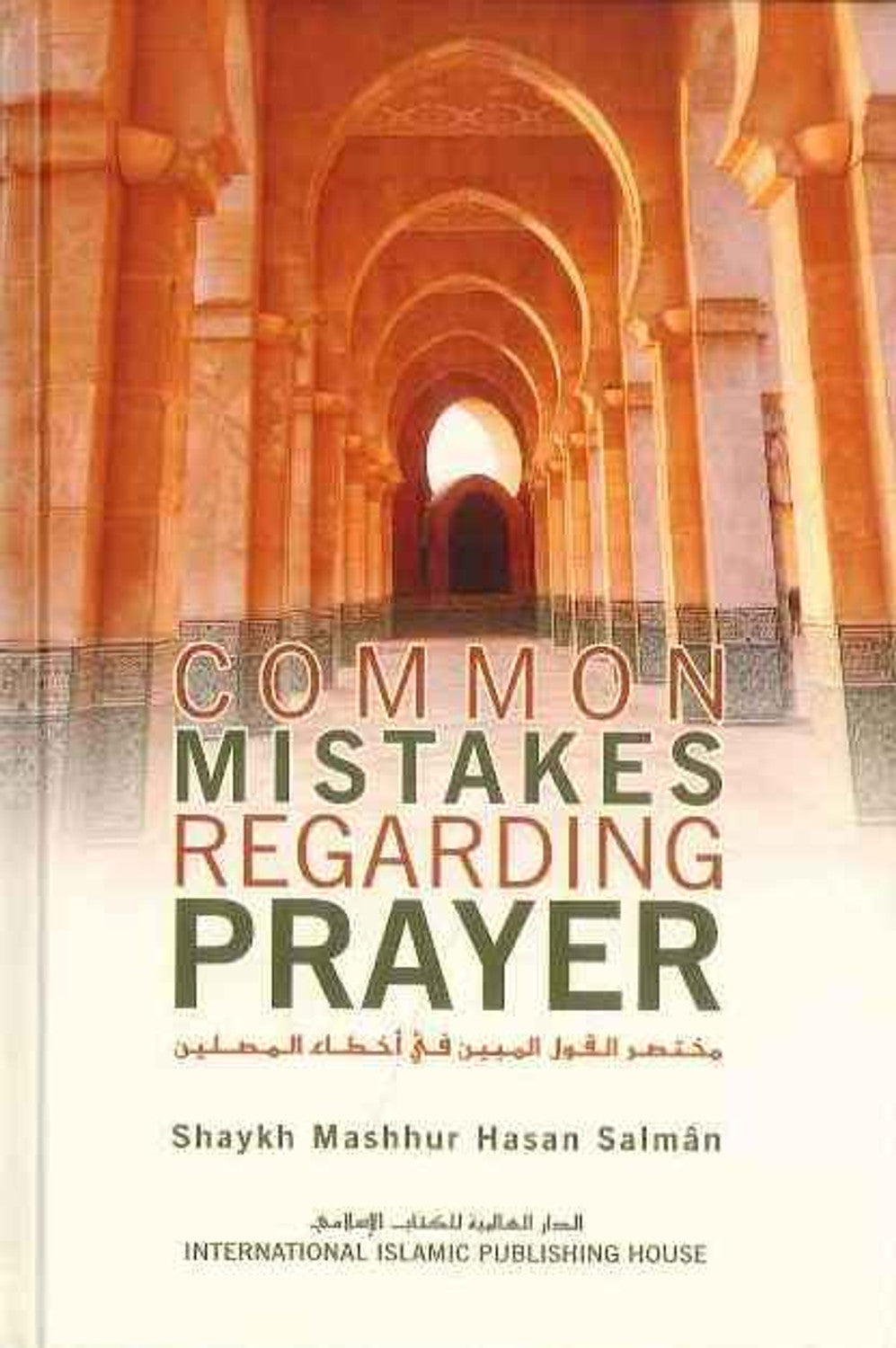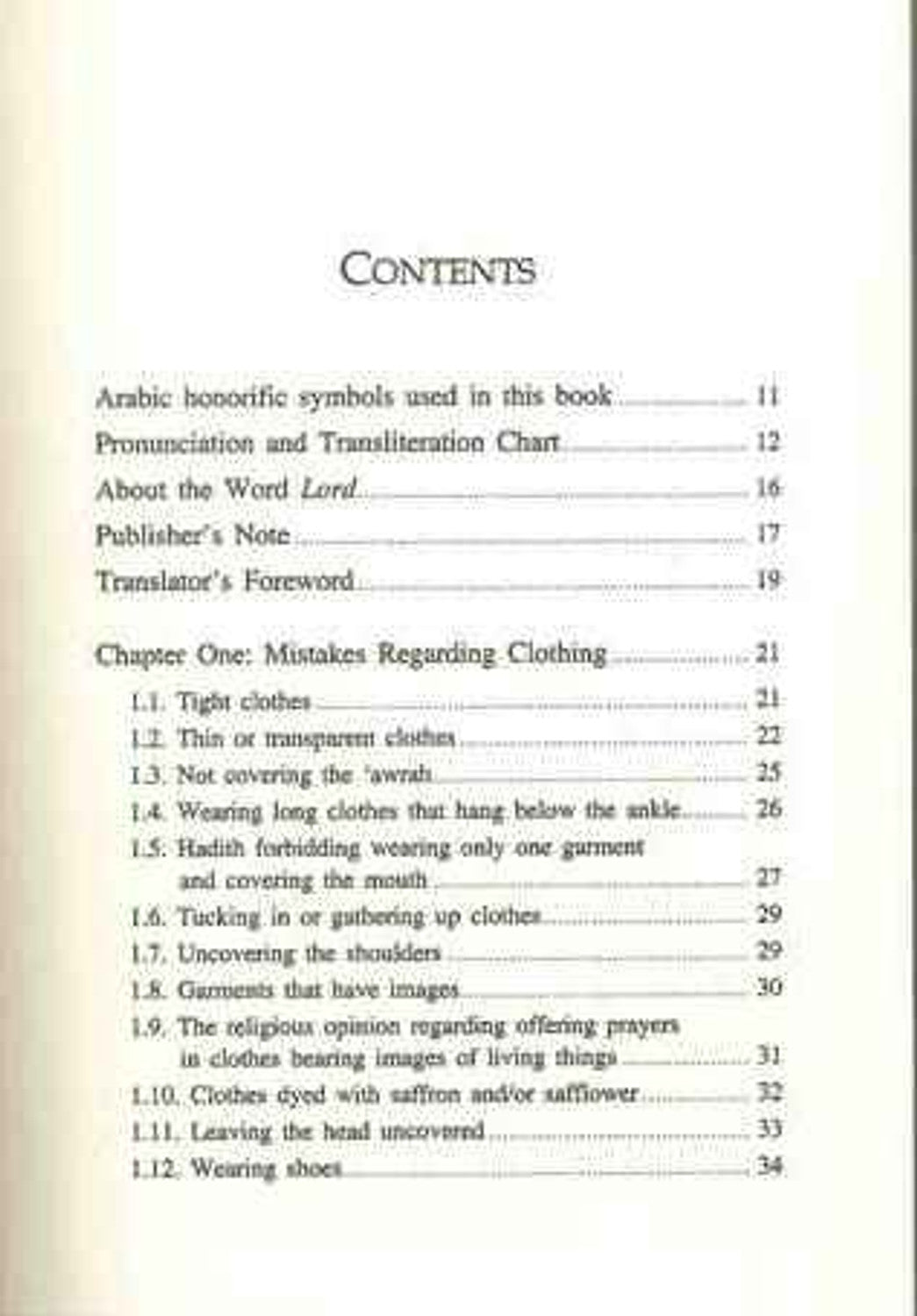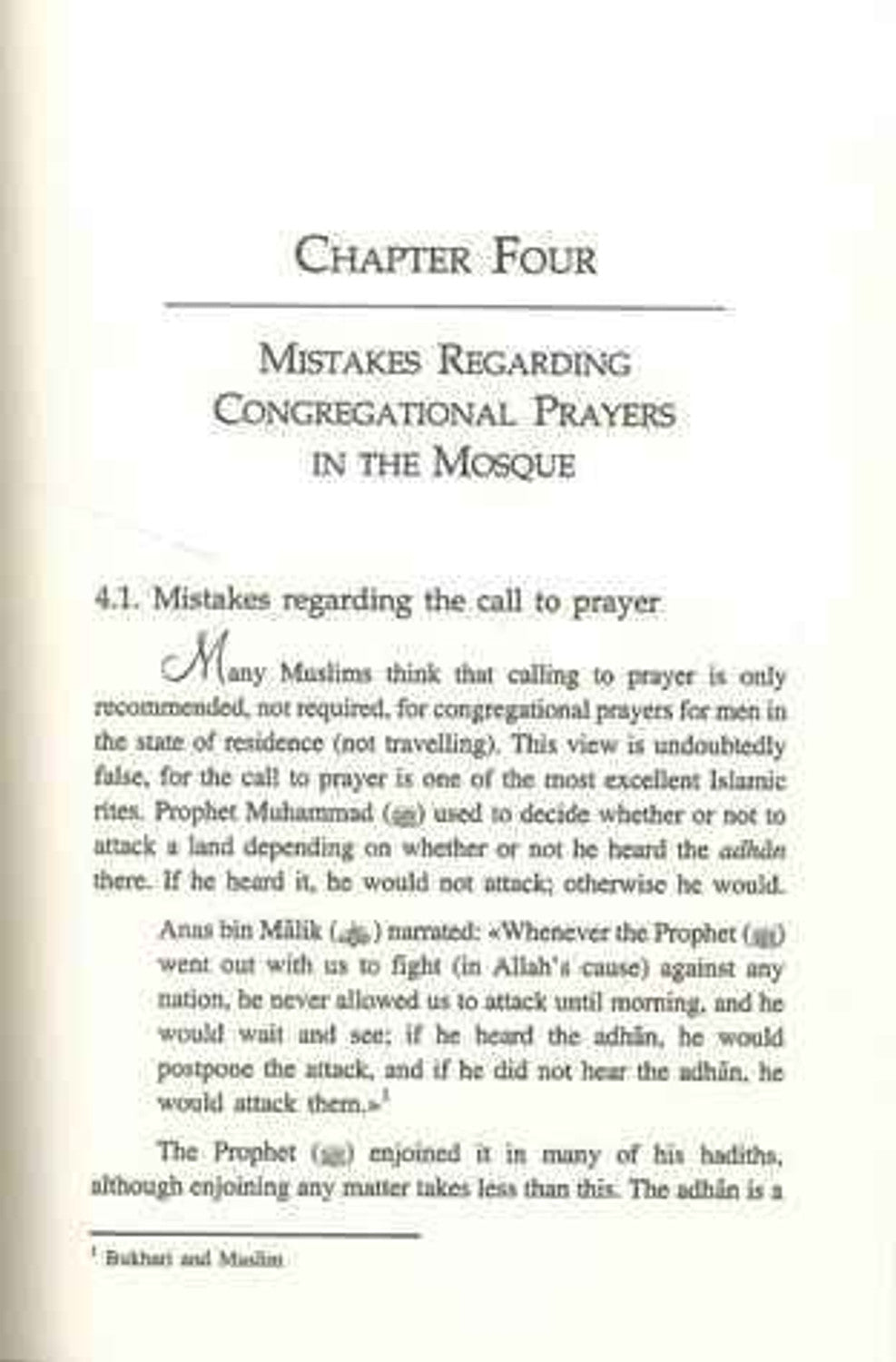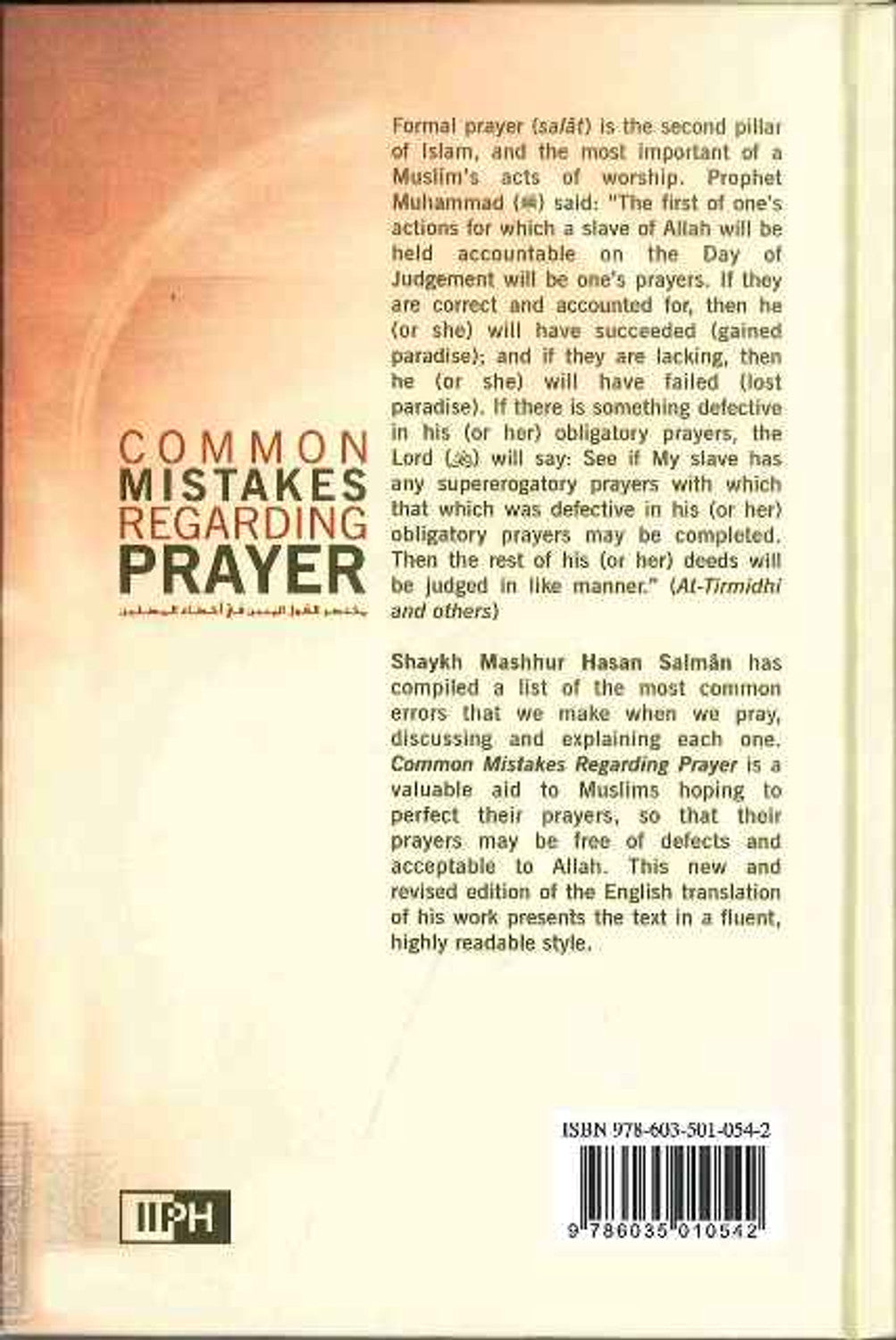Common Mistakes Regarding Prayer
Common Mistakes Regarding Prayer
Publisher:
IIPH (International Islamic Publishing House)
Language:
English
Binding:
Hard Cover
Pages: 280
Size: 15x22cm
Couldn't load pickup availability




Collapsible content
Description of Book
Common Mistakes Regarding Prayer
Prayer is one of the most powerful acts of worship, serving as a direct connection between the worshipper and their Creator. Yet, many individuals fall into common mistakes that reduce its impact and spiritual value. Often, prayers are performed mechanically, with little understanding of the words being recited, causing a lack of emotional and spiritual connection. Some delay their prayers or rush through them, focusing more on completing the ritual than engaging with its meaning. Others may neglect proper preparation, such as cleanliness or appropriate attire, or struggle to maintain concentration, allowing distractions to take over their thoughts during the sacred moments of communication with God. At times, the intention behind prayer is weakened—performed to fulfill obligation rather than out of sincere devotion. These subtle yet significant errors can hinder the true essence of prayer. Recognizing and correcting these habits allows believers to return to a state of mindfulness, humility, and sincere worship.
Publisher
IIPH (International Islamic Publishing House)
Author
Sample Pages - Content
PAGE NO :1
MISTAKES
REGARDING
PRAYER
Shaykh Mashhur Hasan Salman
INTERNATIONAL PUBLISHING HOUSE
PAGE NO :2
The Book of Major Sins
The two-faced person
To revile, serious slander
Disclosing secret
Cursing a
Saying bad about the dereasrd
A man may curse his parents!
Non-lslamic call
Intercession in prescribed punishments
Giving help in a fålse
Speak good, or keep silent
Avoid speech during civil
The saying, "People have perished"
Boasting
Reviling other's race.
Claiming false
Denying •
Slandering chaste believing women
Ridicule.
False claims and transgressing in quarrels
Claiming knowledge with
Being ungrateful.
Slandering the pious and ridiculing the poor
Frightening a Muslim
Boasting of receiving what has not been
Talking about disobedience
PAGE NO: 3
Arabic borxxific symbols used in this
and Transliteration Qiart
About Word t.ord..
Note
Translator's Foreqord
One: Mtstakcs Regarding Clotbmg
Tight
Not 'awrah
, the opmjoa offatng
living rhtags
. to. eyed cafftoa
PAGE NO: 4
CHAPTER FOUR
MISTAKES REGARDING
CONGREGATIONAL PRAYERS
IN THE MOSQUE
4.1. Mistakes regarding the call to prayer
any Muslims think that calling to only
tercoaxttrn&d. not requited. for prayers fcs in
the state ot (not travelling), This is undoubtedly
the to prayer is of the most
Prophet Muhamtn»d (e) used to decade whether or to
att.xk tand on not be the
if hc it. be would Ottxk; ochetwUe would.
bin Milik ) narrated: •Wherever Prophet
uent out with to fighg (in cause) asainst aay
nation. be allowed to att.ad until morning. and he
wou&l wait and see: if the he
po'tvooe die and if he did heat the alhin. he
attack
Prvpbet enpincd in rnnny ot hxtåths,
although enjoin
]ng any tnnlic:r takes Jess than thiv is
PAGE NO :4
Formal prayer {Sa/ät) is the, second pillaj
of and the most important of
Muslim's acts ot worship. Prophet
Muhammad said: "The first of one's
actions which a slave ot Allah be
held accountable on the Day Ot
Judgement will be one's prayers. they
are correct and accounted for; then he
(Ot she) will have succeeded (gained
paradise}; and if they äre lacking, then
he {or she) will have failed Oost
98radise}, If there is something defective
in his (or hor) obligatory prayers, the
COMMON
Lord will say: See if My slave has
MISTAKES
any supererogatory prayers With which
that which defective in hit (or hen
REGARDING
obligatory prayers be completed,
PRAYER
Then the rest Of his (Ot deeds will
be judged like manner."
others}
Shaykh Mashbur Hasan Salman has
compiled a list ot the most common
errors that we make when we pray;
discussing and explaining each one,
Common Mistakes Regarding Prayer is a
valuable aid to Muslims hoping to
perfect then prayers, so that their
prayers. may be tree ot delects and
acceptablü to Allah. This new and
revised edition of the English tvanslötion
of his wort present; the tett in a fluent,
highly readable style
Who is Shaykh Mashoor Salman?
Shaykh Mashhoor Hasan Salmaan is a prominent Islamic scholar and educator, born in 1960 in Palestine. He moved to Jordan at the age of seven and began his formal Islamic studies at ten, focusing on the sciences of Qur’an, Hadith, and fiqh (Islamic jurisprudence). Among his notable teachers were Shaykh Muhammad Nâṣir ad-Deen al-Albâni and Shaykh Mustafâ az-Zarqâ’. Shaykh Mashhoor was instrumental in founding the Al-Albâni Center in Jordan and the magazine Al-Asâlah, contributing significantly to Islamic da’wah (propagation) and scholarship




